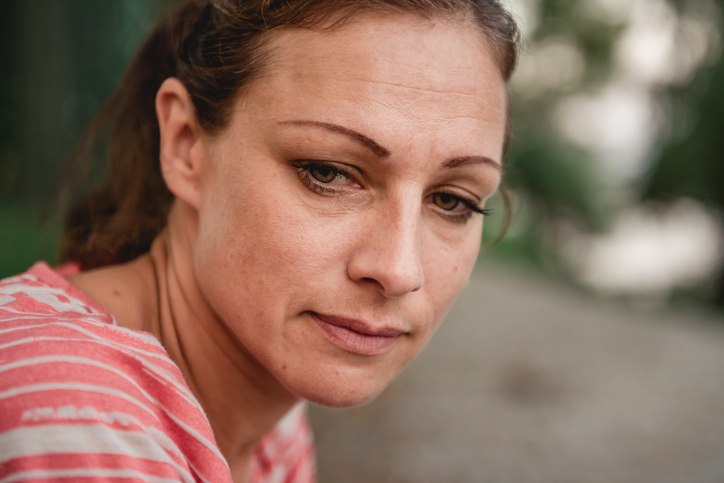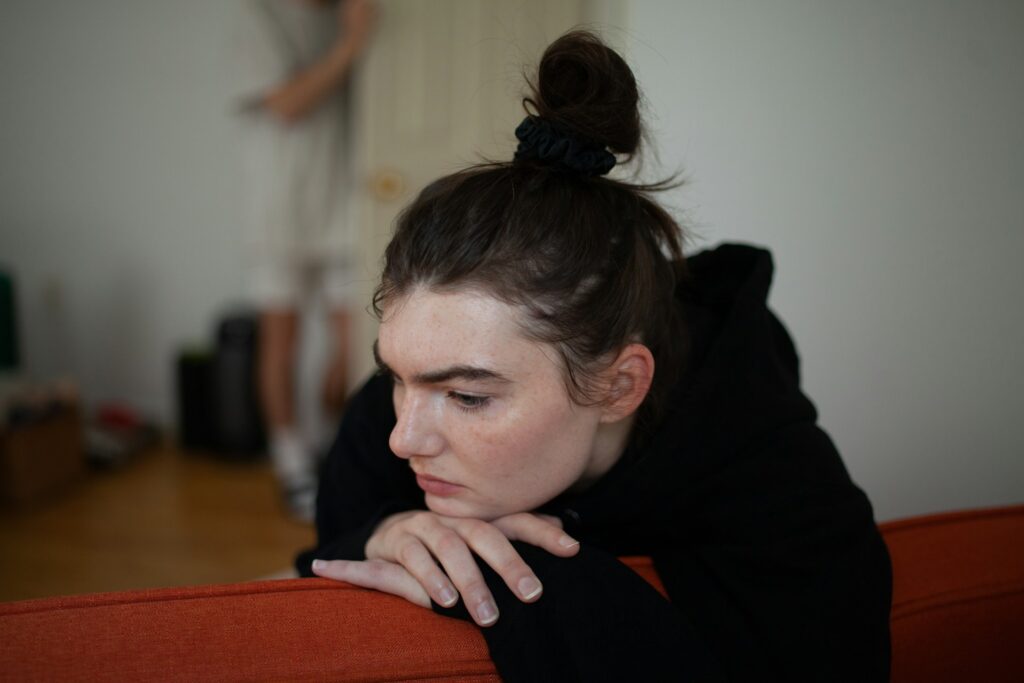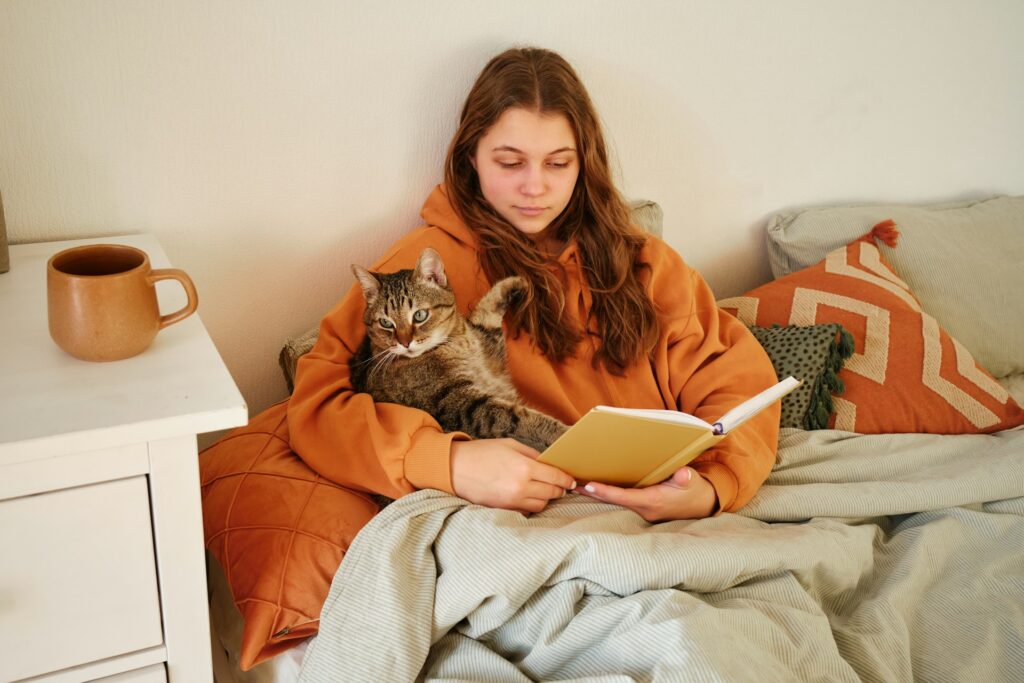When your pain or fatigue isn’t visible on the outside, it’s easy for people to assume you’re fine.

However, invisible illnesses, such as autoimmune conditions, chronic fatigue, fibromyalgia, or neurological disorders, can eat away at your quality of life in ways few understand. The hardest part often isn’t just the symptoms. It’s how unseen it all is. Here are some of the more isolating truths about living with an illness that no one can see.
1. People expect you to keep up because you “look fine.”

If you’re not limping, bandaged, or visibly sick, people often assume you’re just tired or exaggerating. You’re expected to go at full speed, show up with energy, and meet responsibilities like everyone else. When you can’t, the guilt hits hard. You’re constantly balancing how much to explain versus how much to hide, just to avoid judgement or the assumption that you’re lazy or unreliable.
2. You have to explain your pain without proof.

There’s no cast or test result to hold up as evidence. You’re stuck describing pain that comes and goes, fatigue that’s debilitating but invisible, or brain fog that can’t be measured. Sometimes, even doctors don’t know how to validate it. That constant explaining wears you down. It makes you question your own experience, like if you can’t prove it, maybe it’s not real. But it is real—you just can’t hold it up to the light for inspection.
3. People assume you’re better the moment you smile.

Smile, laugh, or have a good day, and people start treating you like you’ve recovered. Like the illness disappeared because your mood improved. However, they don’t see what it cost to get out of bed that day, or how long you’ll need to rest after. It forces you to downplay joy and hold back in conversations, just to avoid sending the wrong message. The reality is, feeling okay for a few hours doesn’t mean you’re fine—it just means you’re surviving within the limits.
4. You often apologise for being in pain.

Even though it’s not your fault, you catch yourself apologising for needing a break, cancelling plans, or not being able to keep up. You shrink yourself down to be less of an inconvenience. Living with a chronic or invisible illness turns your basic needs into a negotiation. Plus, the more people don’t understand, the more you feel like you have to justify simply taking care of yourself.
5. Support can fade as time goes on.

When you first open up about your illness, some people respond with kindness. However, if it’s not short-term or curable, the patience can wear off. Life moves on for them, but you’re still managing the same symptoms. Eventually, check-ins get less frequent. Invitations slow down. You feel like the “tired one,” the “unreliable one,” or the friend people don’t quite know how to include anymore.
6. There’s grief in who you used to be.

You remember the version of yourself who had more energy, more flexibility, fewer limits. Sometimes you mourn that person. Not because you dislike who you are now, but because your reality changed without warning or choice. Invisible illness forces you to reinvent your sense of self constantly, and that grief doesn’t always go away. It just sits quietly next to your new life, making room where it can.
7. Simple things become emotionally complex.

A coffee date, a short walk, or a spontaneous outing might sound lovely, but it requires planning, energy budgeting, and often recovery time. What used to be simple now feels like a logistical and emotional calculation. So, you say no to things you wish you could say yes to. Plus, people don’t always understand that it’s not about them—it’s about protecting the small scraps of energy you have left.
8. You second-guess every reaction.

Did I sound negative? Did I cancel too many times? Did I explain enough, or too much? You question how much space your illness is allowed to take up in other people’s lives, even when you’re barely coping. It creates this quiet loop of self-doubt where you feel like a burden, even when no one’s said so. That loop adds just one more invisible weight to carry.
9. You live in fear of being disbelieved.

Even a raised eyebrow or casual “are you sure it’s not just stress?” can feel like a punch. You learn to detect micro-dismissals in people’s tone, expressions, or responses to your honesty. That fear of not being believed leads to emotional restraint. You water things down, soften the truth, or say you’re “just tired” when what you mean is “my body is falling apart, and I don’t know how to keep going today.”
10. You manage a full-time mental load no one sees,

Tracking meds, managing symptoms, bracing for flare-ups, adapting your environment, researching, pacing—it’s all happening behind the scenes. The thing is, most people have no idea just how much mental work goes into getting through a normal day. By the time you’ve done all that invisible labour, there’s often not much left for work, friendships, or conversation. But because it’s silent work, it goes unnoticed—and that makes the weight lonelier.
11. People praise you most when you’re hiding it best.

The compliments come when you push through—when you look “normal,” smile anyway, or act like nothing’s wrong. And while it’s meant kindly, it reinforces a hard truth: you’re only validated when your pain is invisible again. It teaches you that your illness is more palatable when it’s hidden. And over time, that message eats away at your right to rest, to ask for help, or to simply not perform strength all the time.
12. You feel guilty for not being “grateful enough.”

Yes, things could be worse. Yes, you might look healthy on the outside. Of course, that doesn’t cancel out the daily struggle you’re living with. Still, you catch yourself feeling guilty for acknowledging it. You’re told to “focus on the positives,” but sometimes there aren’t any. Kindness isn’t about forced optimism—it’s about being allowed to tell the truth about your experience without apologising for it.
13. It’s hard to ask for help when you’ve had to seem okay.

Once you’ve built a persona of strength or independence, especially to avoid being pitied, it’s hard to drop the act. Asking for support suddenly feels like admitting defeat, or backtracking on your “I’ve got this” mask. Of course, the truth is, you never stopped needing help. You just got good at managing the fallout of not getting it. And that skill, while impressive, is deeply lonely to carry alone.
14. You question your own reality more than you should.

When no one else sees the symptoms, you start doubting yourself. Was it really that bad? Am I making a fuss? Could I have pushed through? That self-doubt lingers long after the flare-ups pass. Living with invisible illness often means gaslighting yourself before anyone else even has the chance. The erosion of inner trust can be harder to heal than the physical symptoms.
15. You’re incredibly strong, but tired of having to be.

You’ve built resilience most people will never understand. You’ve adapted, endured, and made space for life within the limitations you didn’t choose. However, that doesn’t mean you want to be strong all the time. Sometimes, you just want rest. Recognition. A moment where you don’t have to be impressive, positive, or tough—just allowed to be exactly where you are, without explanation or expectation.


